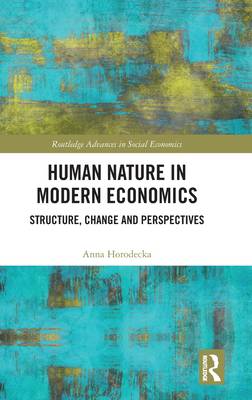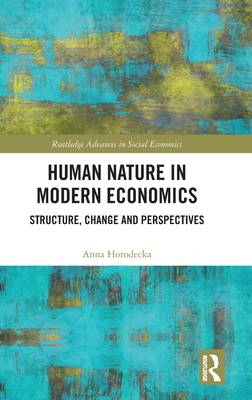
- Retrait gratuit dans votre magasin Club
- 7.000.000 titres dans notre catalogue
- Payer en toute sécurité
- Toujours un magasin près de chez vous
- Retrait gratuit dans votre magasin Club
- 7.000.0000 titres dans notre catalogue
- Payer en toute sécurité
- Toujours un magasin près de chez vous
Description
Human Nature in Modern Economics offers a precise definition of the concept of human nature in economics, something that is so far lacking in the theoretical and methodological literature.
This book develops tools for the analysis of human nature through the construction of the author's meta-model - based on anthropological and psychological foundations - allowing for comparisons of anthropological assumptions made in economic theories. The model demonstrates that the normative functions of human nature may affect the economic reality. The chapters argue that the concept of human nature determines our thinking about the economy and economics, including fundamental methodologies, methods and theories. Thus, the differences between various economic schools may result from the different assumptions of these schools about human nature. Those evolving views of human nature proceed to explain the development of both orthodox (mainstream) and heterodox economics.
The book marks a significant addition to the literature on the history of economic thought, heterodox economics, economic theory and economic methodology. For students, it is a supplement to standard textbooks as it explains the current state of economics, especially in its heterodox branches. It will allow scholars to discover the importance of what they assume about human nature and how it may influence their research process.
Spécifications
Parties prenantes
- Auteur(s) :
- Editeur:
Contenu
- Nombre de pages :
- 264
- Langue:
- Anglais
- Collection :
Caractéristiques
- EAN:
- 9781032073415
- Date de parution :
- 16-06-22
- Format:
- Livre relié
- Format numérique:
- Genaaid
- Dimensions :
- 156 mm x 234 mm
- Poids :
- 557 g

Les avis
Nous publions uniquement les avis qui respectent les conditions requises. Consultez nos conditions pour les avis.






